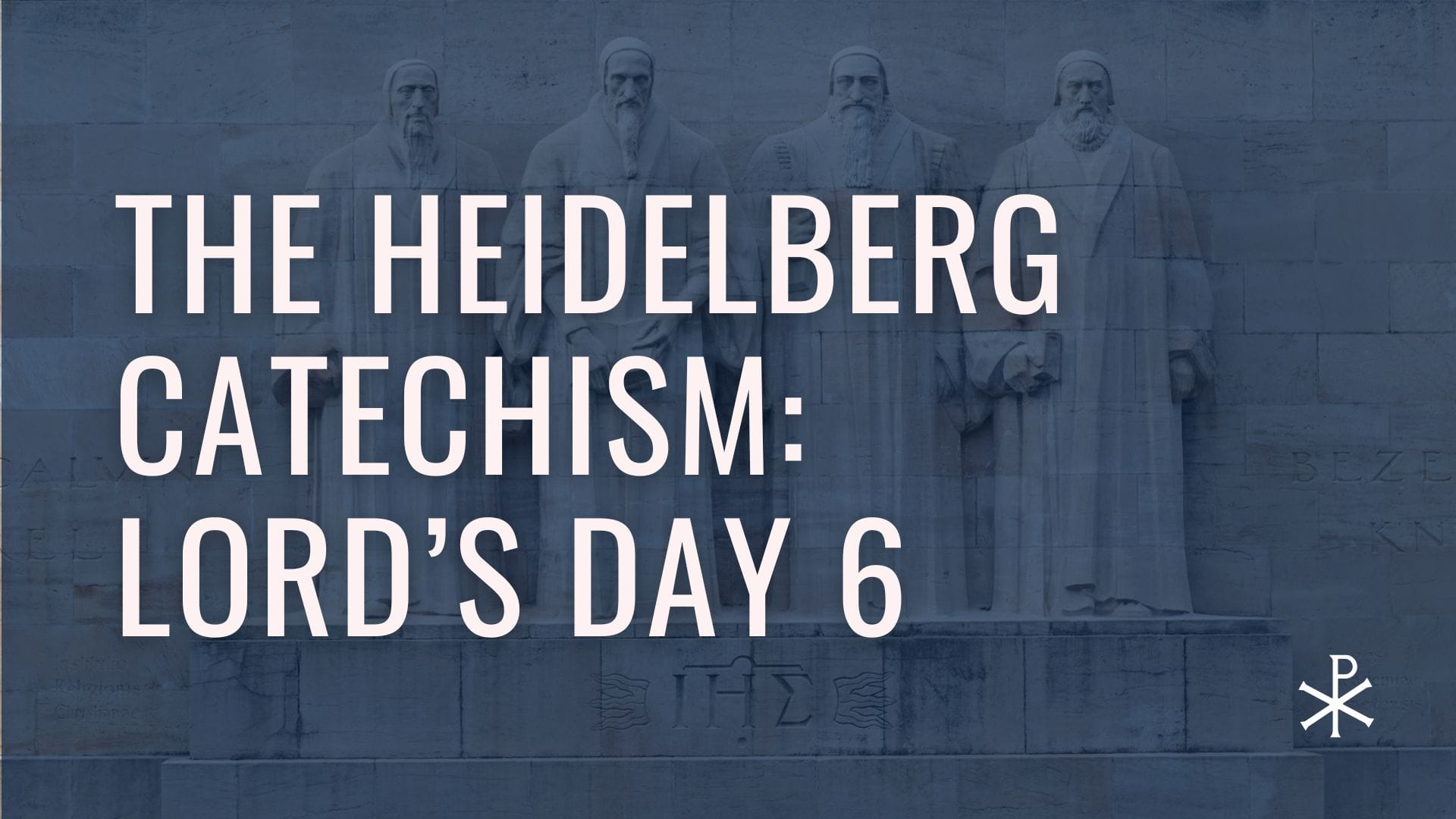Heidelberg Catechism: Lord's Day 6
If we cannot save ourselves and no mere creature can stand in our place, then who can? Who is able to satisfy God’s justice, bear our sin, and reconcile us to Him?

Last week, we were left with a profound question: If we cannot save ourselves and no mere creature can stand in our place, then who can? Who is able to satisfy God’s justice, bear our sin, and reconcile us to Him?
This week, the catechism answers that longing with clarity—our Mediator must be both truly human and truly divine. It is not enough for Him to be a righteous man; He must also possess divine power to withstand the weight of God’s eternal wrath and redeem His people completely.
The significance of this truth cannot be overstated. Christianity is not a system of moral improvement or self-redemption. It is about a Person—one who alone is qualified to bridge the gap between God and man. This Person is Jesus Christ, the God-man, the only Savior given under heaven by whom we must be saved (Acts 4:12).
Let’s reflect on this week’s questions and answers.
Question 16
Why must He be a true and sinless man?
Because the justice of God requires that the same human nature which has sinned should make satisfaction for sin;1 but no man, being himself a sinner, could satisfy for others.2
1 Romans 5:12, 15; 1 Corinthians 15:21; Hebrews 2:14-16; 2 Hebrews 7:26-27; 1 Peter 3:18
Question 17
Why must He be at the same time true God?
That by the power of His divine nature1 He might bear in His human nature the burden of God’s wrath2 and so obtain for and restore to us righteousness and life.3
1 Isaiah 9:5; 2 Deuteronomy 4:24; Nahum 1:6; Psalm 130:3; 3 Isaiah 53:5, 11; John 3:16; 2 Corinthians 5:21
Question 18
But who is that Mediator, who is at the same time true God and a true, sinless man?
Our Lord Jesus Christ,1 who is freely given unto us for complete redemption and righteousness.2
1 Matthew 1:21-23; Luke 2:11; 1 Timothy 2:5, 3:16; 2 1 Corinthians 1:30
Question 19
From where do you know this?
From the Holy Gospel, which God Himself first revealed in Paradise;1 afterwards proclaimed by the holy Patriarchs2 and Prophets,3 and foreshadowed by the sacrifices and other ceremonies of the Law;4 and finally fulfilled by His well-beloved Son.5
1 Genesis 3:15; 2 Genesis 12:3, 22:18, 49:10; 3 Isaiah 53: Jeremiah 23:5-6; Micah 7:18-20; Acts 10:43; Hebrews 1:1; 4 Leviticus 1:7; John 5:46; Hebrews 10:1-10; 5 Romans 10:4; Galatians 4:4-5; Colossians 2:17
This week, we see the answer unfold: Jesus Christ alone is the Mediator we need. He is not merely a great teacher, a moral example, or a prophet among many. He is the eternal Son of God, who took on human flesh, lived righteously in our place, bore the wrath we deserved, and rose in victory.
From the very beginning, God had planned this redemption. The gospel is not a human invention—it is God’s gracious revelation, first whispered in the garden of Eden, then proclaimed through the prophets, and finally accomplished in Christ.
Next week, we will explore how we come to share in this Mediator and His benefits.
A Closing Prayer
Gracious Father,
We stand in awe of Your wisdom and mercy. You did not leave us in our sin, but in Your great love, You provided a Mediator—one who is both fully human to represent us and fully God to save us. We praise You for Jesus Christ, the perfect Redeemer, who bore our sin and secured our righteousness.
Help us to trust in Him alone, resting not in our own efforts but in His finished work. May we live this week with gratitude, humility, and confidence in the salvation You have freely given us.
In His mighty name, we pray, Amen.
Daily Bible Readings
New Testament in a Year
February 9 – Matthew 23:13-39
February 10 – Matthew 24:1-28
February 11 – Matthew 24:29-51
February 12 – Matthew 25:1-30
February 13 – Matthew 25:31-46
February 14 – Matthew 26:1-25
February 15 – Matthew 26:26-46
The Bible in a Year
February 9 – Leviticus 15-17; Matthew 23:13-39
February 10 – Leviticus 18-20; Matthew 24:1-28
February 11 – Leviticus 21-23; Matthew 24:29-51
February 12 – Leviticus 24-25; Matthew 25:1-30
February 13 – Leviticus 26-27; Matthew 25:31-46
February 14 – Numbers 1-2; Matthew 26:1-25
February 15 – Numbers 3-4; Matthew 26:26-46
